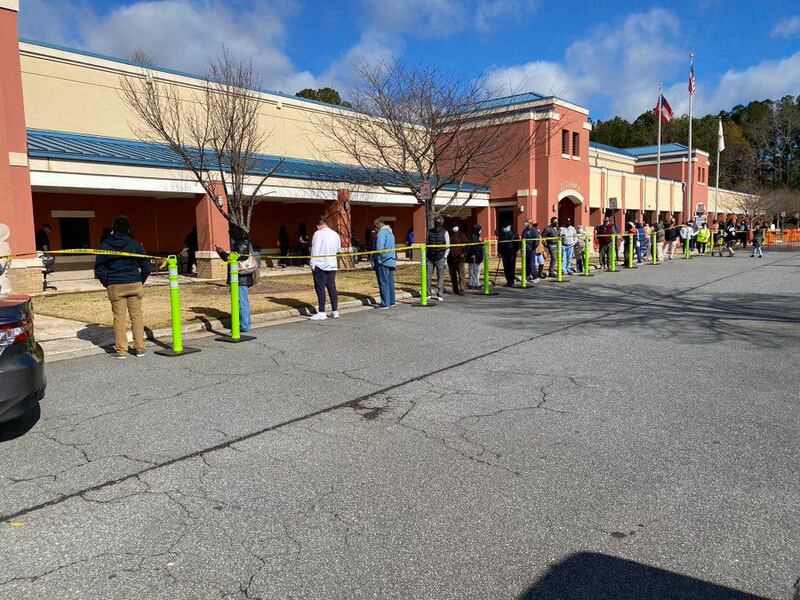ATLANTA — An effort to challenge the eligibility of thousands of Georgia voters fell short a week before the U.S. Senate runoff elections.
Federal Judge Leslie Gardner — who is the sister of a former gubernatorial candidate and founder of voters’ rights group Fair Fight, Stacey Abrams — overruled decisions by elections officials in two south Georgia counties.
This month, election boards in Muscogee and Ben Hill counties flagged more than 4,000 voters as potential out-of-state voters. Those voters would have had voted provisionally and would likely have been investigated past Election Day. Until Gardner’s ruling on Monday, that was considered to be against federal law.
Georgia Secretary of State Brad Raffensperger called the ruling “a direct attack on rule of law.” For progressive voting rights groups, they said the ruling is actually a judge stopping a bold attempt at voter suppression.
But now, the judge in the case is coming under attack herself.
“Federal laws are designed to prevent exactly this kind of disaster where a board of elections at the last minute throws thousands of people into an ineligible voter list,” said Georgia State University law professor Clark Cunningham.
He told Channel 2′s Matt Johnson that Gardner ruled against the two counties primarily because federal law forbids changes to voter registration rolls within 90 days of an election.
TRENDING STORIES:
- Some stimulus checks deposited tonight; paper checks to be mailed Wednesday
- Tyrese Gibson’s SUV stolen from driveway of Buckhead mansion
- Suspect identified in murder of 7-year-old Kennedy Maxie near Phipps Plaza
“If you do it at the last minute, it doesn’t allow people time to respond or correct,” Cunningham said.
Muscogee County elections officials relied on evidence from the Muscogee County Republican Party Chair Ralph Russell.
On Dec. 14, he said he ran public voter data against the national change of address registry. Voting rights experts said that’s not enough.
“When you do not have evidence that someone is ineligible, which they didn’t, it is voter suppression to be changing how they vote,” said Myrna Perez, with the Brennan Center for Justice.
Federal law states, “States shall not remove the name of a registrant from the official list of eligible voters in elections for Federal office on the ground that the registrant has changed residence unless the registrant . . . confirms in writing that the registrant has changed residence.”
“Why didn’t they go through the process of the federal law of sending a postcard to each voter and waiting for them to respond?” Cunningham said.
The lawsuit against the counties was filed by Majority Forward — a Democratic voting rights group.
Raffensperger criticized Gardner as an Obama appointee and cited a potential conflict of interest.
He said in part “that a judge would rule on case brought by a group heavily funded by her sister is very concerning.”
Georgia’s Grand Old Party Chairman David Shafer also raised concerns about the judge being Abrams’ sister.
“Do you think there’s a legitimate ethics concern here?” Johnson asked Cunningham.
“Not based on what I can see right now,” Cunningham said.
Gardner declined to recuse herself prior to the ruling. An appeal on the ruling is expected before Jan. 5.
Cunningham said Gardner could voluntarily recuse herself not for ethical reasons, but political ones.
“It probably would be good if the case moved on for it to be shifted away to somebody else,” Cunningham said.
Cox Media Group





